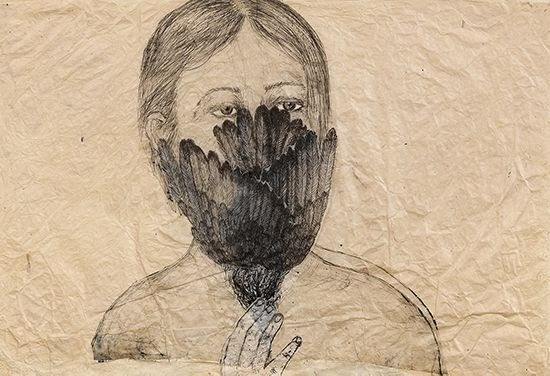"I Have Never Seen Her So Free:" An Interview with Saskia Bakker
- Multiple Contributors

- May 24, 2021
- 3 min read
Saskia Bakker is a third-year Theatre Arts student at DePaul who likes to make puppets and read books and pet dogs. She is very excited to participate in Wrights of Spring once again!
Against the Sky closes May 28th at 7:00 pm, CST. Tickets are available here.
Saskia's note to readers: I would love to know how this play affects my audience – what thoughts, images, and personal stories come to mind. I want to know where people connect with it.
What is this play about?
This play is about stories. It is about motherhood, grandmotherhood, daughterhood, sisterhood. This play explores the role of caretaking, the press of guilt. The thin line between myth and reality and the places where it disappears completely. This is a play about longing and belonging. About a place that is a circle, and the outer web of the rest of the world. It is a play about mending and casting off.
Where did this play come from?
Last summer I was in Western Massachusetts for the most amazing and difficult three months of my life. One weekend my partner and I took a detour to Gloucester, a touristy seaside town. We walked around an empty beach on a gray day, searching for sea glass and dipping our toes in the cold water. The gulls there were not white like on Lake Michigan, but shades of brown, blending into the rocks. I knew then that I wanted to write a play about a seagull.
My mother turned 51 this year. Half a century into her life, she finally stopped being a caretaker and started doing things for herself. I have never seen her so free. I think my growing up has set her free. It is bittersweet.
When I was 13 years old I wanted to be anywhere but home. I wanted to be anyone but myself. My sister, who knows me best, would try to help. But she was busy growing up herself, and I would try to push her away. Now, I think, we are both very happy with who we are. I don’t think either of us could have pictured it back then.
Solitary Daughter by Bedouine goes like this:
With the conviction of the woman you made me
I find
Blades of grass from the island you lent me
I find
On every floor
In every drawer
Though I'm not an island I'm a body of water
Jeweled in the evening a solitary daughter
If picked at by noon
By midnight I'm ruined
Leave me alone to the books and the radio snow
Leave me alone to the charcoal and the dancing shadow
Bim Ramke writes in his poem “One View of the Wide Wide World”:
Two of my uncles were blind.
I had a father and a mother.
I never met a bear, though I was
many times lost in the woods.
Kiki Smith has made many beautiful drawings of women and birds.

Kiki Smith Ohne Titel (Woman with Bird), 2003 ink on paper
Where is this play going? What impact do you hope it leaves on its audience?
I hope this play will empower people to tell each other stories – the greatest gift one can give to another. Not currency, but creation.
How does this play fit into your mission/ethos/aesthetic as a playwright? How did it challenge what you thought you knew about yourself as an artist?
This play started with strong images that have remained throughout the process. However, I cannot write images. It has taken many hours of writing and rewriting to try and build some semblance of the world where these images exist, and to translate them into the minds of the listeners.
My artistic aesthetic very often explores themes of womanhood, nature, love, and the act of growing up. This play is extremely personal to me and yet full of mysteries I have yet to solve. The characters were mine and now they are not. The world is a place I’ve never been.
Were there any moments or scenes you loved but had to cut? Tell us about them!
Many iterations of this play have come to light. The scenes I loved but had to cut are likely the ones not written yet. Right now it is complete enough to stand alone, but there is another draft in the future with all of the thoughts I have not written yet, all of the pieces of the story that are begging to be revealed if I can find the words to do it.
If your play was distilled down into a scent, what would it smell like?
Salt, a wood-burning stove, ink on paper, rocks in the sun.



Comments